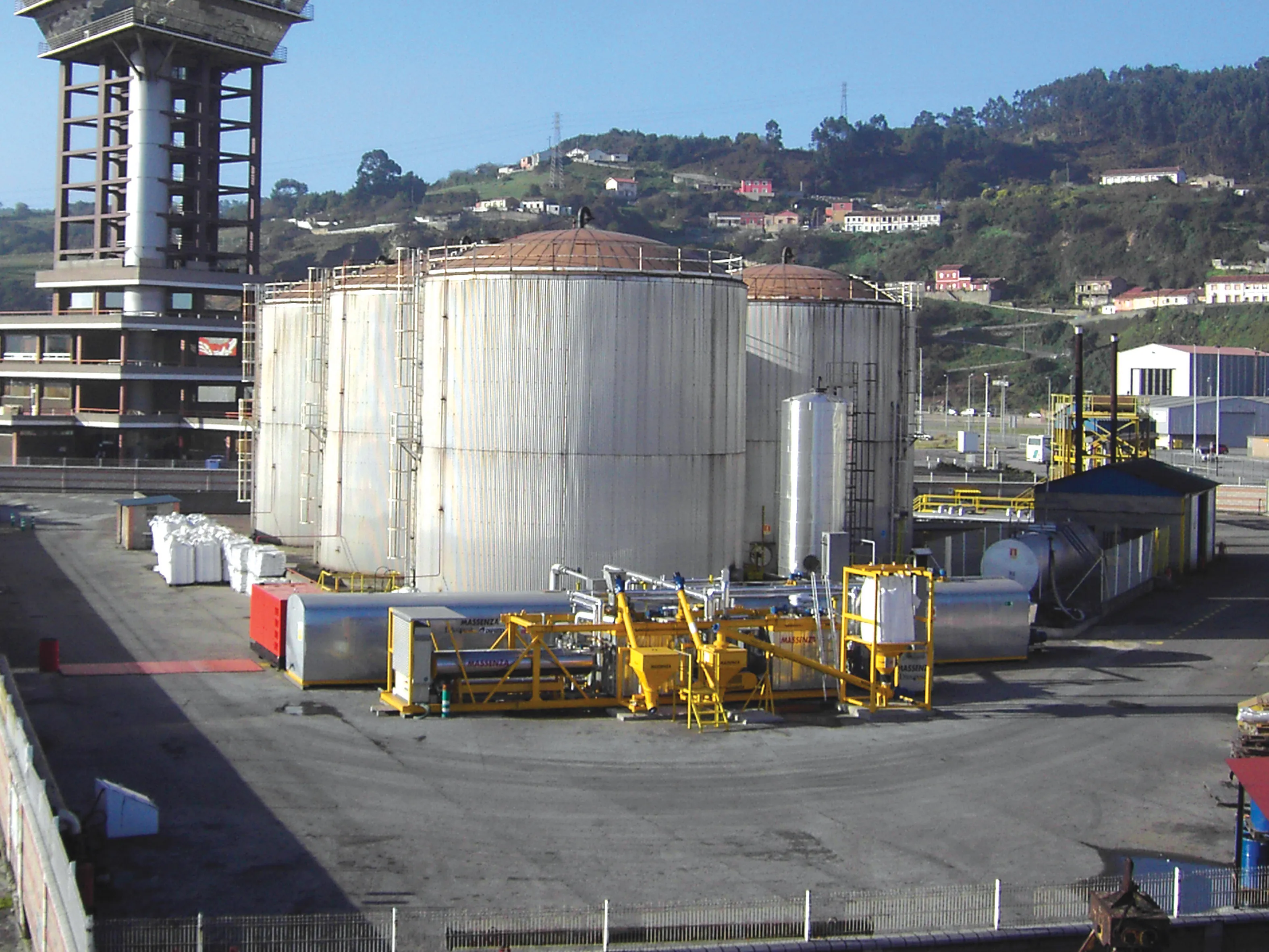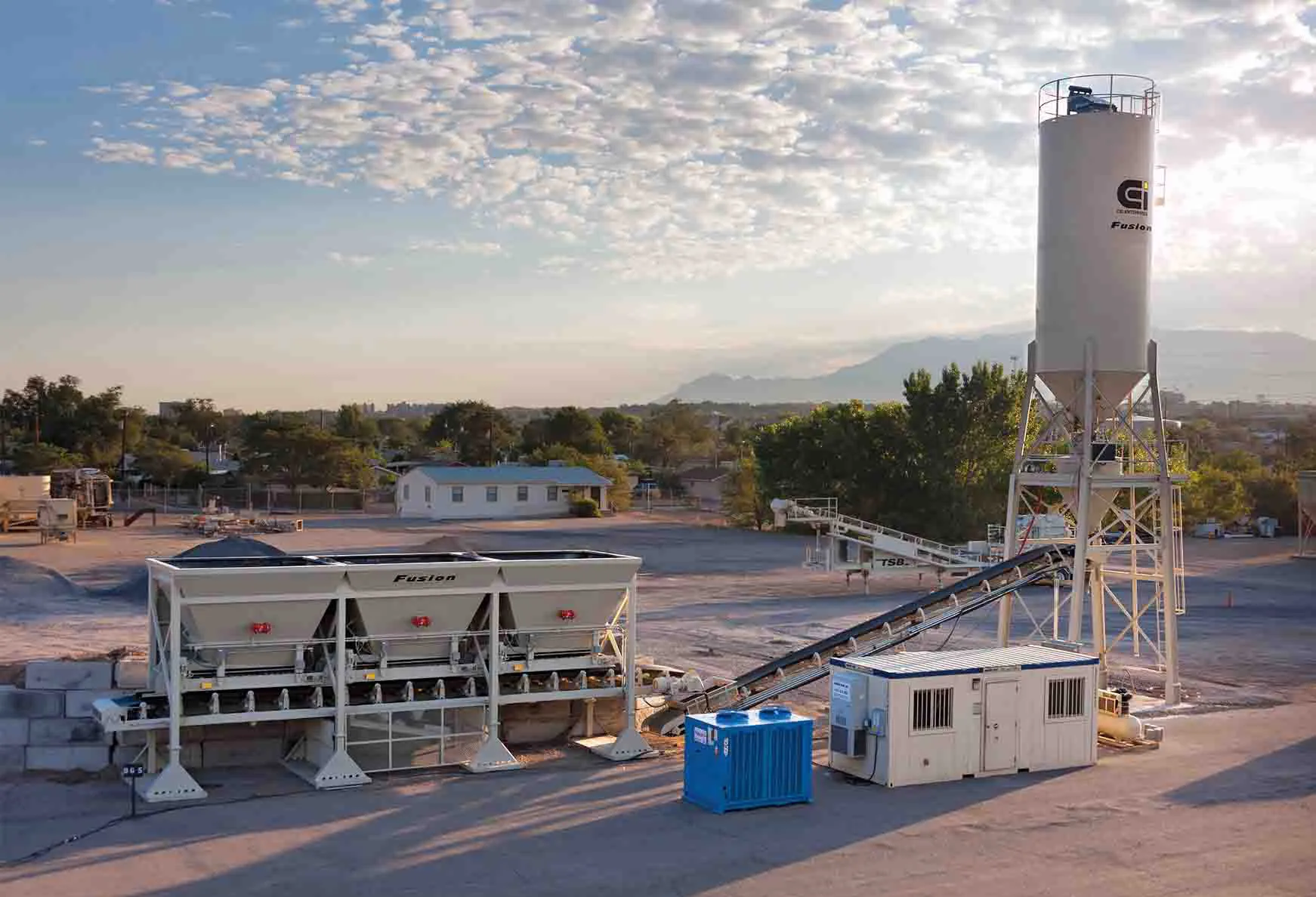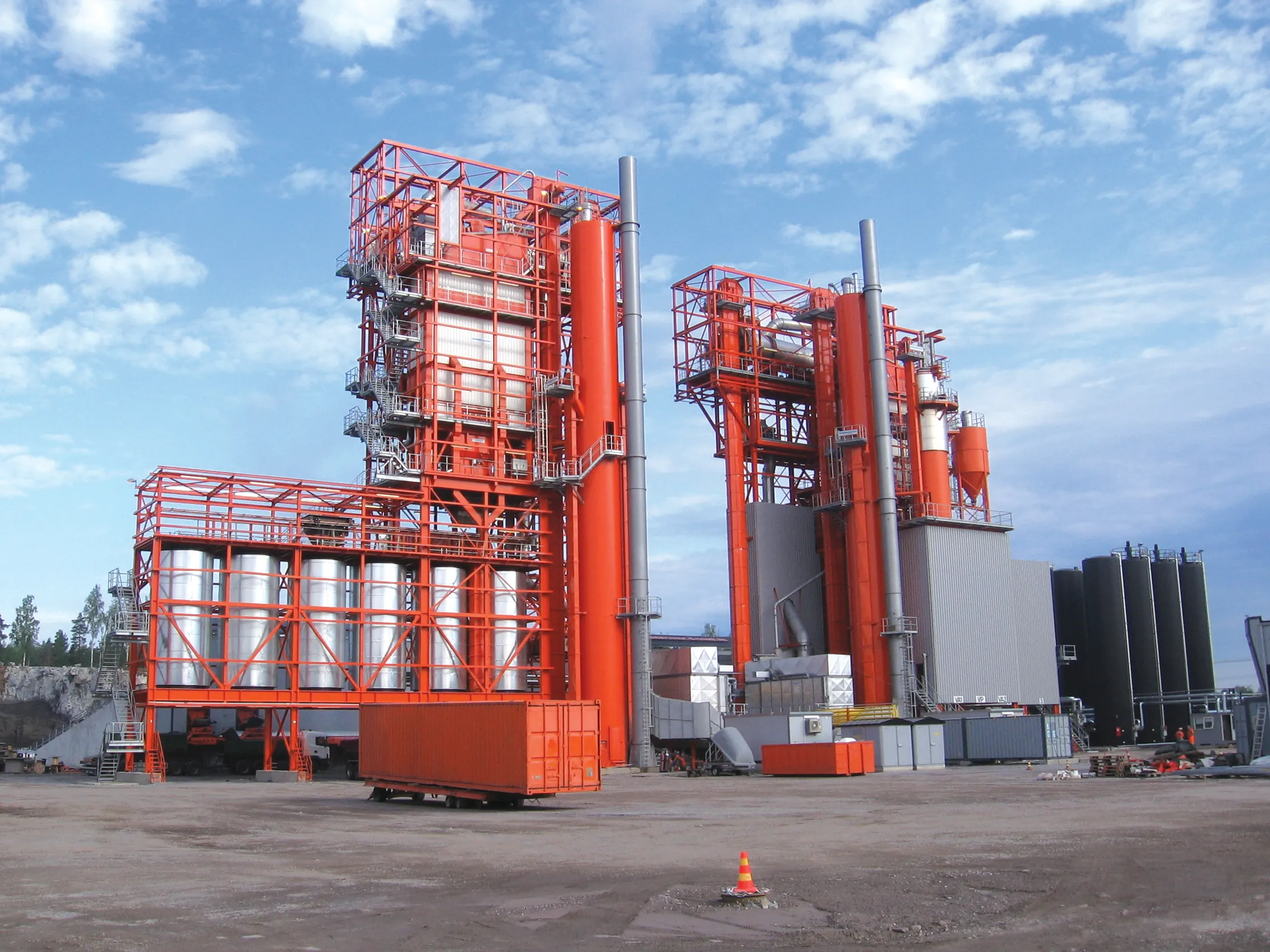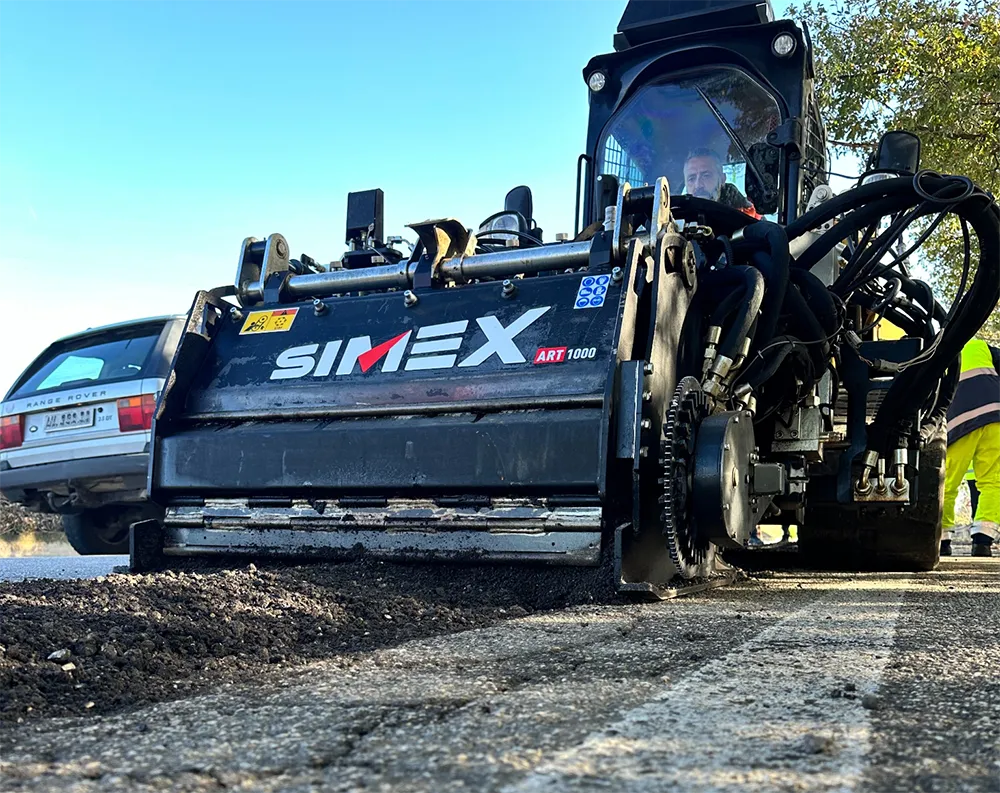Spanish company DITECPESA has developed, manufactured and sold asphalt products since 1988, and has grown steadily due to the supply and quality of its services, the extension of its product range, and the use of applied research projects.
February 10, 2012
Read time: 5 mins

Spanish company 1154 DITECPESA has developed, manufactured and sold asphalt products since 1988, and has grown steadily due to the supply and quality of its services, the extension of its product range, and the use of applied research projects.
The company, part of1156 Group Ferrovial, says it always offers customers the most appropriate products and technology for their projects, obtained by internal research or via technical collaboration agreements with large oil groups.
It has its own laboratory where it carries out R&D on special asphalt products, develops patents and optimises its production units, and this R & D effort has led to the company becoming "a reference company" in new products for roads.
DITECPESA is also involved in numerous projects including participation in the R & D largest European road (%$Linker:External 0 0 0 oLinkExternal www.proyectofenix.es Fenix Project false http://www.proyectofenix.es/ false false %>) and the research process is accompanied by a special interest in sustainability for DITECPESA and Group Ferrovial.
Since this effort is aimed at standardisation and technological development, it says the real added value is that it provides road surface solutions for its customers' specific projects.
DITECPESA coordinates logistics from its headquarters in the Spanish capital Madrid, and distributes products the Iberian Peninsula via two storage bitumen terminals at Alicante and Gijón ports plus two mobile plants for manufacturing modified bitumen and one for emulsions.
The company's personnel are from the construction sector, and offer practical experience to projects when selecting the right asphalt product and defining constructive solutions for large projects says DITECPESA. Technical assistance includes laboratory tests with the possibility of characterising modified bitumen and developing custom emulsions to meet customers' needs.
Spanish market trends demand special modified bitumen involving different types of polymers and crumb rubber, either used alone or mixed together at high percentage (up to 20% content).
DITECPESA says it took up this challenge and decided to look for a modifying plant capable of dealing with both polymers and crumb rubber. To achieve this demanding task, it contacted Italian company6805 Massenza, which manufactures polymer modified bitumen (PMB) plants.
Engineers from both companies worked together and developed a new design for the production of PMB and crumb rubber modified bitumen (CRMB) with one plant.
Basically, the modification of bitumen using polymers or crumb rubber has quite different characteristics in terms of type of cycle, timing, temperatures, for example.
Starting with a Challenger plant outline, a bitumen modification plant "most appreciated among MASSENZA customers," various adjustments have been carried out. The new plant has been arranged in such a way as to make it possible to work with either batch technology for the production of PMB or in a continuous way allowing the production of CRMB.
A double polymer and crumb rubber feeding system is included along with a supplementary solid and liquid additive injection system to allow a high degree of production versatility. The plant is also equipped with a dedicated heat exchanger for instantaneous heating up of bitumen during loading; bypass valve for homogeniser and pumps with variable frequency drive to manage PMB or CRMB production; complete automatic production cycle managed by PLC and touch screen and a full set of ancillary equipment including storage tank for neat bitumen, digestion tank for modified bitumen and thermal oil heater.
The "innovative plant" is located in the northern Spanish city of Gijón, in the DITECPESA bitumen port terminal.
"Thanks to the pioneering MASSENZA PMB plant, DITECPESA can produces all different type of PMB and CRMB bitumen according to Spanish legislation, offering to its customers modified bitumen with low viscosity to work at lower temperature and high resistant carburant bitumen, mainly for airport applications," says José Javier García Pardenilla, DITECPESA Manager.
"From a technical point of view, when a chemist faces the manufacture of a modified bitumen he has firstly to solve the compatibility issue between the polymer and bitumen utilised, and secondly to achieve the required specifications for the modified bitumen. Normally it is not possible to select the ideal basis for modifying bitumen, which makes things more complicated. Two different aspects thus affect the final product: chemical compatibility between bitumen and polymer, and the industrial production process (apart from what is mixed, the process is also very important)." On the first point, different types of chemical fractions of bitumens are developed and the technician chooses the most appropriate; the new plant has several dispensing systems that organise dosage, and when and how it produces this. On the second aspect, the new plant is able to select whether the mill is used or not and the number of passes through the mill. A new important aspect of the process is temperature control: depending on the temperature, modified bitumen may obtain different final features, particularly given the chemistry of the polymer used.
"So, to get a wide range of different modified bitumens, with a large number of formulations that can be up to six components normally, the new plant offers complete flexibility.
"Customers in Spain are very demanding and roads are at a high technical level. Central government is putting great effort into it and local governments are increasingly involved in technological development." In recent years a major customer for DITECPESA has been FERROVIAL AGROMAN that built the highways of930 Cintra (Group Ferrovial), one of the world's largest private developers of transport infrastructure.
The company, part of
It has its own laboratory where it carries out R&D on special asphalt products, develops patents and optimises its production units, and this R & D effort has led to the company becoming "a reference company" in new products for roads.
DITECPESA is also involved in numerous projects including participation in the R & D largest European road (%$Linker:
Since this effort is aimed at standardisation and technological development, it says the real added value is that it provides road surface solutions for its customers' specific projects.
DITECPESA coordinates logistics from its headquarters in the Spanish capital Madrid, and distributes products the Iberian Peninsula via two storage bitumen terminals at Alicante and Gijón ports plus two mobile plants for manufacturing modified bitumen and one for emulsions.
The company's personnel are from the construction sector, and offer practical experience to projects when selecting the right asphalt product and defining constructive solutions for large projects says DITECPESA. Technical assistance includes laboratory tests with the possibility of characterising modified bitumen and developing custom emulsions to meet customers' needs.
Spanish market trends demand special modified bitumen involving different types of polymers and crumb rubber, either used alone or mixed together at high percentage (up to 20% content).
DITECPESA says it took up this challenge and decided to look for a modifying plant capable of dealing with both polymers and crumb rubber. To achieve this demanding task, it contacted Italian company
Engineers from both companies worked together and developed a new design for the production of PMB and crumb rubber modified bitumen (CRMB) with one plant.
Basically, the modification of bitumen using polymers or crumb rubber has quite different characteristics in terms of type of cycle, timing, temperatures, for example.
Starting with a Challenger plant outline, a bitumen modification plant "most appreciated among MASSENZA customers," various adjustments have been carried out. The new plant has been arranged in such a way as to make it possible to work with either batch technology for the production of PMB or in a continuous way allowing the production of CRMB.
A double polymer and crumb rubber feeding system is included along with a supplementary solid and liquid additive injection system to allow a high degree of production versatility. The plant is also equipped with a dedicated heat exchanger for instantaneous heating up of bitumen during loading; bypass valve for homogeniser and pumps with variable frequency drive to manage PMB or CRMB production; complete automatic production cycle managed by PLC and touch screen and a full set of ancillary equipment including storage tank for neat bitumen, digestion tank for modified bitumen and thermal oil heater.
The "innovative plant" is located in the northern Spanish city of Gijón, in the DITECPESA bitumen port terminal.
"Thanks to the pioneering MASSENZA PMB plant, DITECPESA can produces all different type of PMB and CRMB bitumen according to Spanish legislation, offering to its customers modified bitumen with low viscosity to work at lower temperature and high resistant carburant bitumen, mainly for airport applications," says José Javier García Pardenilla, DITECPESA Manager.
"From a technical point of view, when a chemist faces the manufacture of a modified bitumen he has firstly to solve the compatibility issue between the polymer and bitumen utilised, and secondly to achieve the required specifications for the modified bitumen. Normally it is not possible to select the ideal basis for modifying bitumen, which makes things more complicated. Two different aspects thus affect the final product: chemical compatibility between bitumen and polymer, and the industrial production process (apart from what is mixed, the process is also very important)." On the first point, different types of chemical fractions of bitumens are developed and the technician chooses the most appropriate; the new plant has several dispensing systems that organise dosage, and when and how it produces this. On the second aspect, the new plant is able to select whether the mill is used or not and the number of passes through the mill. A new important aspect of the process is temperature control: depending on the temperature, modified bitumen may obtain different final features, particularly given the chemistry of the polymer used.
"So, to get a wide range of different modified bitumens, with a large number of formulations that can be up to six components normally, the new plant offers complete flexibility.
"Customers in Spain are very demanding and roads are at a high technical level. Central government is putting great effort into it and local governments are increasingly involved in technological development." In recent years a major customer for DITECPESA has been FERROVIAL AGROMAN that built the highways of









